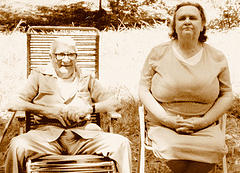Posted on 19 July 2011. Tags: combination drug, copycats, cost of hiv treatment, developing countries, gilead sciences, hiv drugs, hoen, patent pool, pharmaceutical company, treatment of hiv
 On Tuesday, the Medicines Patent Pool and the United States pharmaceutical company Gilead Sciences announced a deal to boost HIV drug access in developing countries by introducing generic manufacturing.
On Tuesday, the Medicines Patent Pool and the United States pharmaceutical company Gilead Sciences announced a deal to boost HIV drug access in developing countries by introducing generic manufacturing.
Under the new licensing agreement for HIV drugs, tenofovir, emtricitabine, cobicistat, and elvitegravir will be allowed to have low-cost copycats. Also included in their licensing deal is the creation of a new combination drug called the Quad.
Executive director of the Medicines Patent Pool, Ellen ‘t Hoen, said that this license deal marks a milestone in the treatment of HIV. Because of this, HIV medicines will become more accessible and cheap. People in developing countries have to wait for years before they can get their hand on recent health technologies. Because of the new agreement with Gilead Sciences, people from poorer countries can now get these HIV medicines without delay.
All thanks to generic drugs, the cost of HIV treatment has dropped from $10,000 in 2000 to $86 per patient per year. There is still, however, a need for more expensive drugs to give doctors options because some patients do not respond well to generic medicine. Also, HIV mutates which puts patients at risk for long-term drug resistance problem.
This is the first of its kind; the first agreement between a pharmaceutical company and Medicine Patents Pool. This is a good step towards overcoming our problems with the increasing HIV rate.
Posted in Health
Posted on 19 July 2011. Tags: antiretroviral drugs, antiviral drugs, chinnery, dna replication, dr brendan, genetic medicine, hiv, newcastle university, study suggests that, treatment of hiv
 A recent study suggests that an older class of antiretroviral drugs for the treatment of HIV may lead to premature aging. The study was published June 26th in Nature Genetics.
A recent study suggests that an older class of antiretroviral drugs for the treatment of HIV may lead to premature aging. The study was published June 26th in Nature Genetics.
The findings of this research help explain why some people who are receiving treatment for HIV with antiviral drugs demonstrate signs of frailty and diseases that are age-related like dementia and cardiovascular disease.
Professor Patrick Chinnery said that it is a real mystery how HIV clinics saw patients who have been successfully treated but show signs that their body are older than their age. Professor Chinnery is a fellow at the Institute of Genetic Medicine Newcastle University.
Normally, our DNA is copied our entire lifetime; but as we grow older, DNA replication accumulates errors. Chinnery explained that they have reason to believe that antiretroviral drugs accelerate the rate to which these errors occur. He added that patients who stopped taking the medications years ago are still at risk for early ageing.
Study co-author Dr. Brendan Payne said that the drugs may not be perfect but they are relatively cheap and they give patients with HIV extra 10 to 20 years. He added that this is extremely important for Africa where HIV rate is high but the resources are quite low.
Posted in Health
 On Tuesday, the Medicines Patent Pool and the United States pharmaceutical company Gilead Sciences announced a deal to boost HIV drug access in developing countries by introducing generic manufacturing.
On Tuesday, the Medicines Patent Pool and the United States pharmaceutical company Gilead Sciences announced a deal to boost HIV drug access in developing countries by introducing generic manufacturing.
 A recent study suggests that an older class of antiretroviral drugs for the treatment of HIV may lead to premature aging. The study was published June 26th in Nature Genetics.
A recent study suggests that an older class of antiretroviral drugs for the treatment of HIV may lead to premature aging. The study was published June 26th in Nature Genetics.